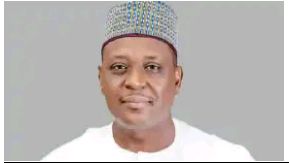Sokoto.
He said beyond providing essential care to Nigerians, these facilities will position Nigeria as a healthcare hub within West Africa and Africa, reversing the trend of outbound medical tourism.
He noted that upon completion of this phase, the NSIA will operate one of the largest chains of oncology and diagnostic centres in West Africa, or even the continent of Africa, with the capacity to train up to 500 clinicians over a three-year period.
“While these new cancer centres will go a long way in addressing the accessibility challenge, Mr. President is also concerned about the affordability of cancer treatment for our population. To this end, we are working to improve the affordability, especially for the poorer and disadvantaged families who often suffer from the double burden of cancer-related illnesses and the hefty costs associated with treatment.
“The National Health Insurance Authority, has already designed a catastrophic health insurance fund, which has been provided in the service-wide vote of the 2025 federal budget, an amount of N20bn which, when the funds are cash-backed by the treasury, will help to reduce the financial burden of treatment for catastrophic illnesses like cancer, kidney diseases and also spinal injuries.
“For cancers, this comes at a time when our administration is focused on increasing the number of accredited radiotherapy centers, strengthening collaboration with local pharmaceutical and medical equipment companies, and ensuring that moderated therapy technology is available nationwide to all Nigerians who unfortunately require it.
“This is the change that our people voted for in 2023, and this is the tangible outcome of the collective decision our nation took in electing Asiwaju Bola Ahmed Tinubu as our president. Our hope shall be renewed in the health sector and across the many sectors of our national life,” he concluded.
